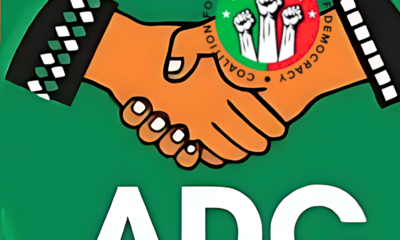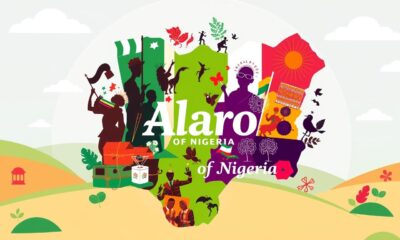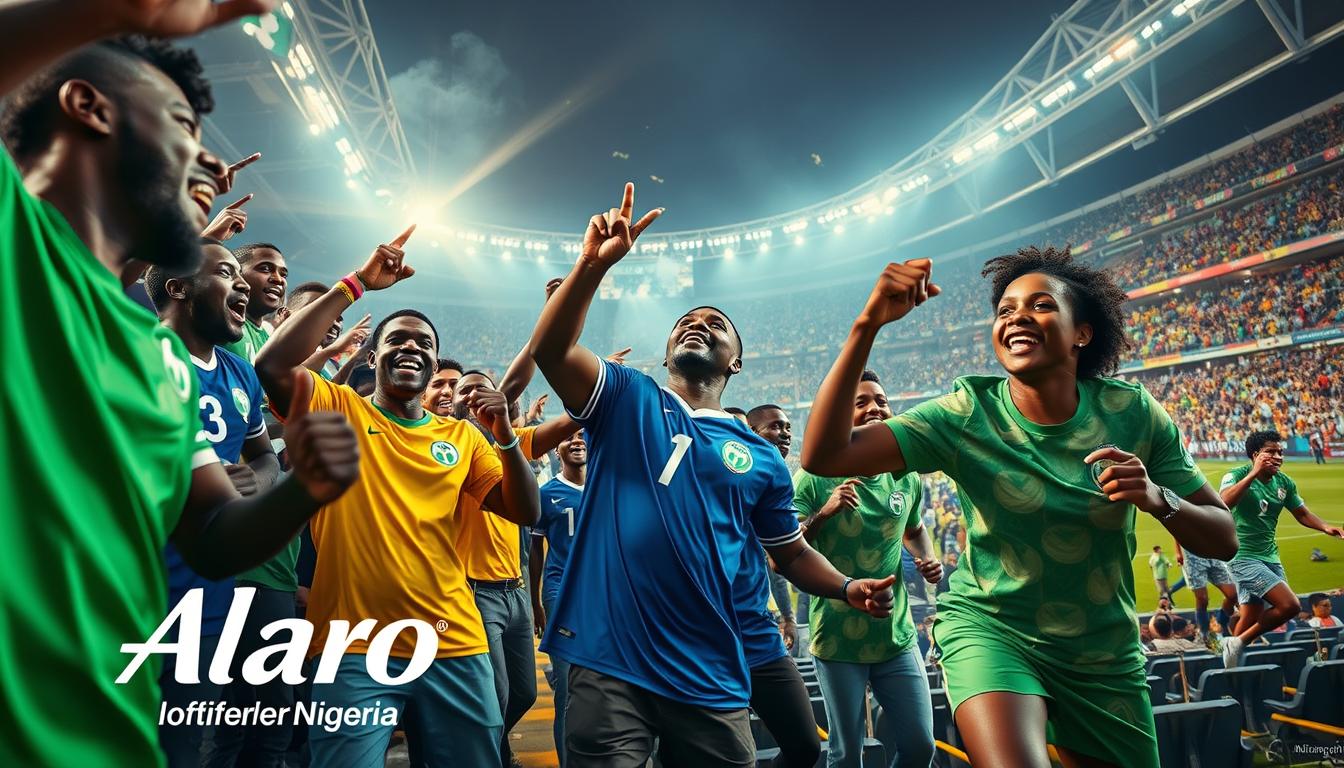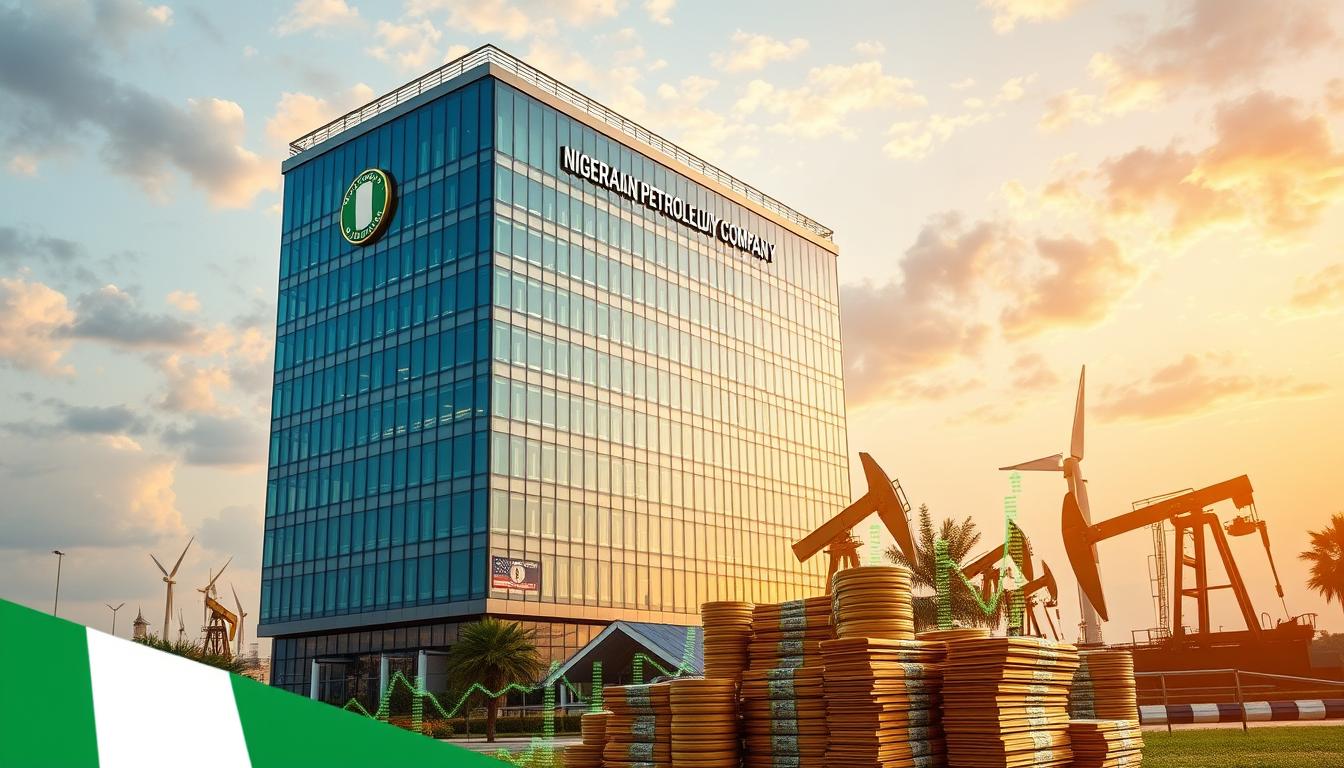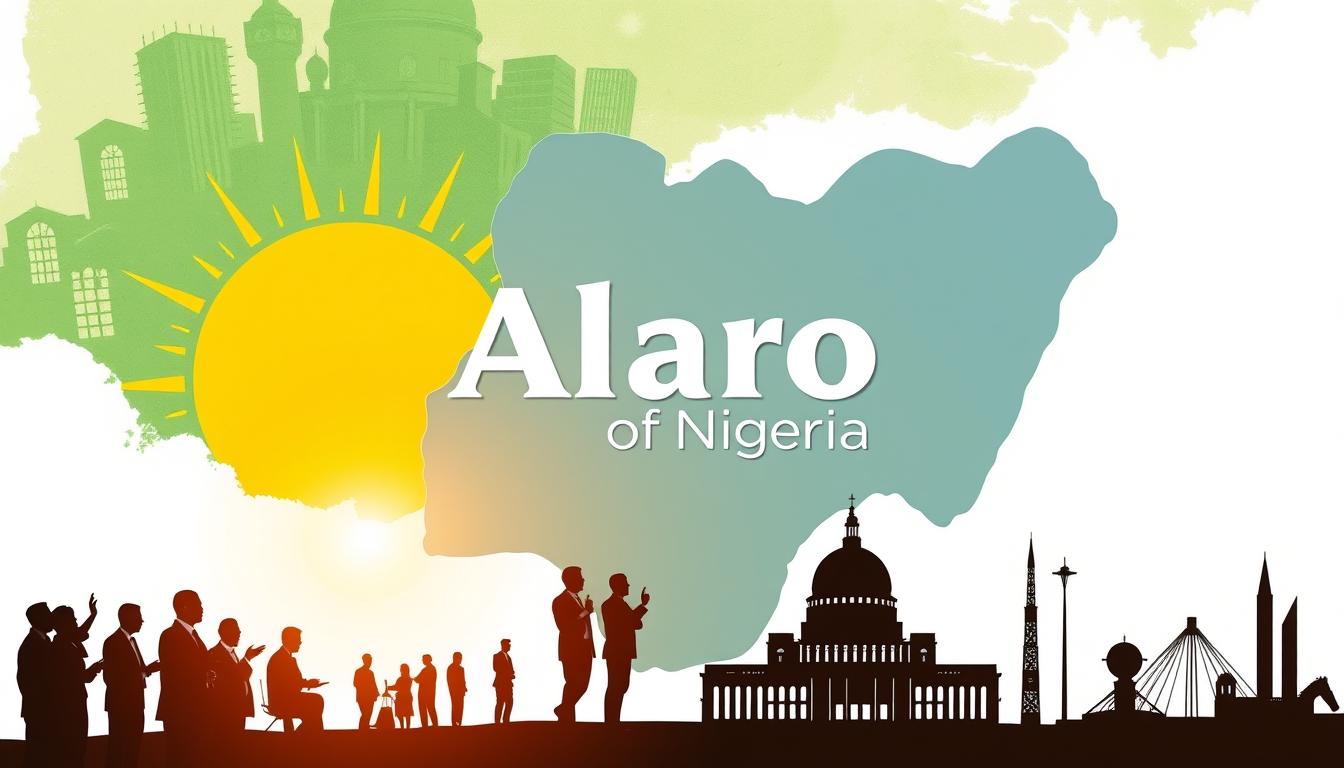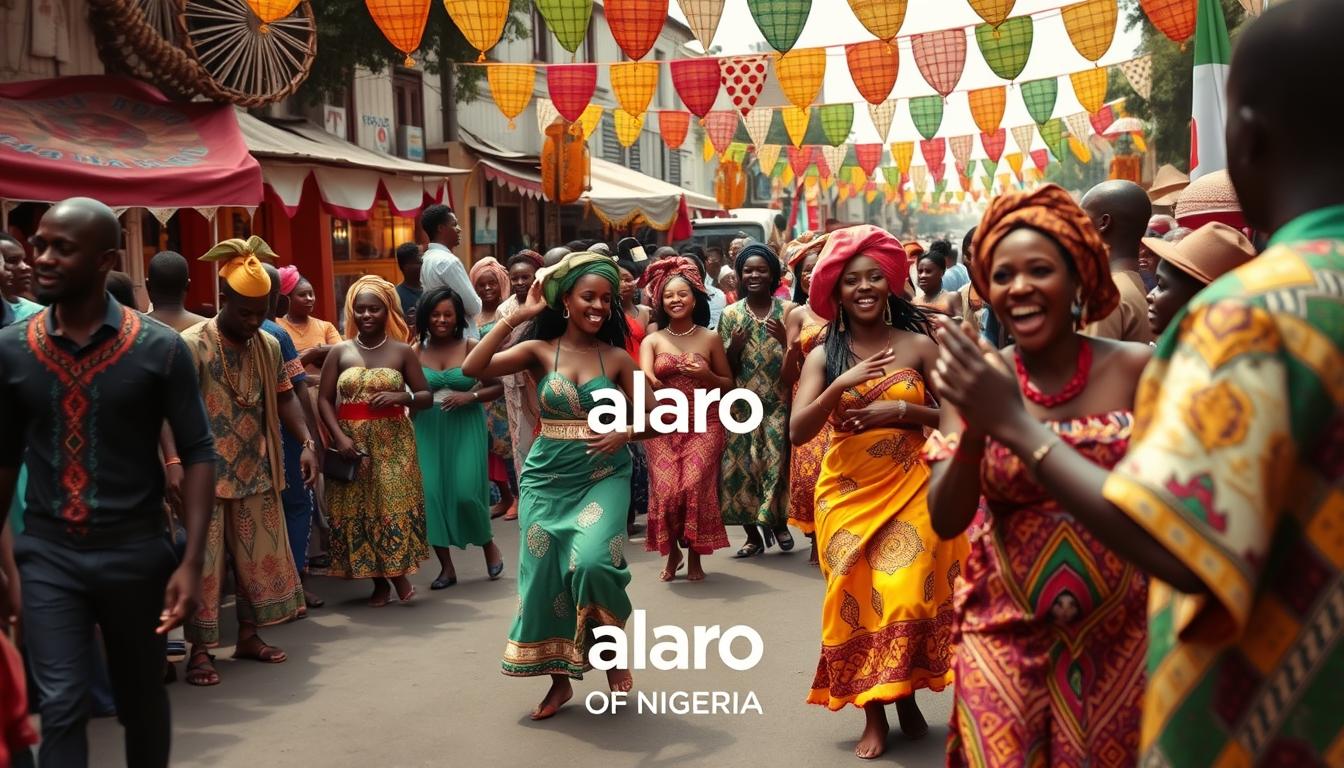Business
Inside Nigeria: Top Trends and Daily Stories
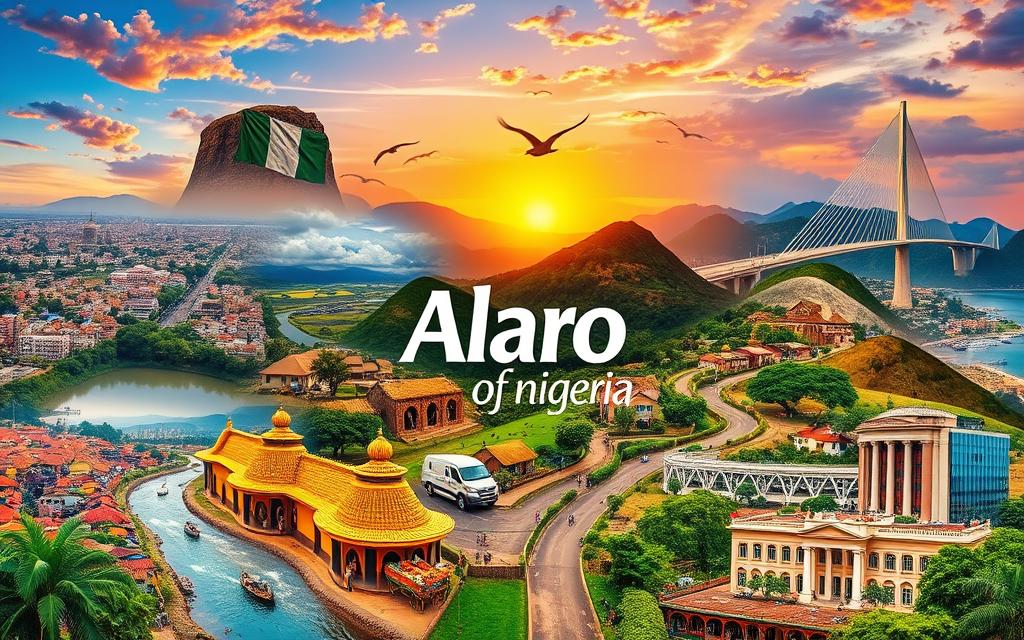
Exploring Nigeria’s growth, it’s key to see how our future links to supporting our youth. Is it possible for Nigeria to reach its highest potential without focusing on the younger generation? Believe it or not, 33 million Nigerians might suffer from serious hunger by mid-2025 if nothing changes. This fact shows how urgent it is to change how we empower and educate our youth. Chinua Achebe pointed out that Nigeria’s main issue is leadership failure. Now, we need discussions that lead to action.
In my small Nigerian hometown, I saw changes in the market and streets, but people’s hardships stayed the same. We need to listen to our youth, who want chances to improve things. Their ideas and zest can boost our economy, but we must recognize and back them up. Now is the time to delve into Nigerian news, new businesses, and our rich culture through local stories. By doing so, we aim for a better future.
Key Takeaways
- Investment in youth is crucial for Nigeria’s growth and development.
- The alarming statistic indicates that 33 million Nigerians risk food insecurity by 20251.
- Leadership in Nigeria has consistently been called into question, echoing Achebe’s sentiments1.
- Nigerians must embrace the potential of their youth to drive innovation and economic change.
- Current trends in Nigeria highlight the need for actionable strategies in education and support systems.
Nigerian Entrepreneurs Driving Economic Growth
Nigerian entrepreneurs are key in shaping the country’s economy. They start new businesses in many areas, bringing innovation and jobs. Especially in tech, they are changing things quickly and show how crucial startups are.
Emerging Startups and Their Impact
Startups are booming in Nigeria, changing many industries. The eCommerce sector grew from almost nothing to $1 billion by 2015. This growth is due to more people using the internet and better payment methods2.
By 2024, this market could hit $8.53 billion and may reach $14.92 billion by 2029. Nigerian entrepreneurs use digital tools to overcome hurdles like poor infrastructure and slow government processes3.
Success Stories from the Nigerian Tech Industry
Despite challenges, some entrepreneurs stand out. People like Aliko Dangote and Folorunsho Alakija show what you can achieve with diverse investments3. Their success stories highlight the power of great leadership and connections. They inspire others, encouraging innovation in Nigeria’s tech scene.
Nigerian Sports: Rising Stars and Global Recognition
Nigeria is making big waves in world sports, especially in football. Our athletes are grabbing attention and earning big respect on the world stage. The recent football highlights show the bright talent we have in Nigerian sports. Big moments have fired up our fans. They celebrate every win, showing how sports can bring out our national pride.
Key Highlights from Recent Football Events
Nigerian football teams are showing great skills in tournaments. Teams like Enyimba FC, Kano Pillars, and Rangers International FC have fans that bring excitement. They fill cities like Aba, Kano, and Enugu4 with energy. Our fans’ loyalty doesn’t stop with local teams. They also support the Super Eagles on an international level. They make foreign stadiums feel like home4. This passion helps our football culture and also supports the industry financially thanks to devoted fans4.
Success of Nigerian Athletes in International Competitions
Nigerian athletes are shining on the international scene. For example, Nwankwo Kanu became famous by playing for big clubs like Ajax, Inter Milan, and Arsenal5. We celebrate Chioma Ajunwa for winning in the women’s long jump at the 1996 Atlanta Olympics. Blessing Okagbare is known for her stunning performances in several Olympic Games and World Championships5. Kelechi Iheanacho’s big win at the 2013 FIFA U-17 World Cup as the best player is another proud moment5. These achievements inspire future athletes and bring us together with pride.
Nigerian Diaspora: Contributions and Challenges
The Nigerian diaspora is a lively group playing a key role in how the world sees Nigeria. This community, numbering about 1.7 million people globally, brings positive changes through work and culture sharing. They face tough challenges like dealing with strict immigration rules and settling into new societies.
Achievements of Nigerians Abroad
Nigerians living overseas have built up impressive careers and businesses. They have a big impact on the world and back home. From 2016 to 2018, they sent back more than $65 billion, with $24.31 billion in 2018 alone. This money supports Nigeria’s economy, even more than oil profits at times6.
This flow of money helps local areas grow and pays for education for many Nigerian youths. The move to study abroad started after Nigeria gained independence. It led to better education in countries like the UK and the US. Nowadays, Nigerian experts are moving to places like South Africa, Gabon, and Botswana too7. They succeed in many areas but often struggle to keep connected to their roots and community.
Local Governance in Nigeria: Current Trends
Local governance in Nigeria is crucial for making sure communities develop well. It’s important because it allows local people to have a say in their own futures. By looking at new trends, we understand how better interactions can lead to positive changes.
Recent local elections shed light on how governance can improve and involve more citizens. These events help us see the importance of people’s roles in politics.
Importance of Community Engagement
Getting the community involved is key in Nigeria’s local governance. It makes sure people’s ideas are listened to and taken seriously. When communities are involved, services get better because the local government knows what people need.
This kind of involvement supports democracy right from the bottom, making sure elections show what people really want.
Recent Local Elections and Their Outcomes
Recent elections have become better organized and competitive. People are now more eager to vote because they understand its impact. These elections have made elected officials realize they need to be more open about their decisions.
Thanks to these elections, more infrastructure projects like drug manufacturing plants have started. By 2023, there has been progress with the approval of 105 drug plants8. Such developments boost trust in local governance and motivate more people to take part in future elections9.
Nigeria Tourism: Attractions and Opportunities
Nigeria is filled with amazing places that mix culture, history, and stunning beauty. We see a wide range of wonders across the 36 states. Places like the Erin Ijesha Waterfall and the Afi Mountain Wildlife Sanctuary are must-sees. They show off Nigeria’s incredible natural spots10.
Top Tourist Destinations in Nigeria
In Nigeria, places like the Osun-Osogbo Sacred Grove stand out. This UNESCO site is full of art and honors the goddess Osun10. Kajuru Castle and the Kano City Walls give a peek into Nigeria’s past10. For food lovers, the Niger Delta has tasty dishes like Banga soup10.
The Role of Ecotourism in Nigeria’s Economy
Ecotourism is key to Nigeria’s sustainable travel. The “Tour Nigeria” campaign promotes local tourism. It highlights cultural treasures and landscapes11. Yet, issues like poor infrastructure and safety slow its progress. Luxury hotels in cities like Lagos are working to fix these problems11.
Investment in ecotourism helps conservation and offers economic chances for locals.
Interest in exploring Nigeria is growing. This shows the country’s tourism is ready to expand11.
Good infrastructure and easy site access are vital for tourism. It stresses the need for better development plans12.
By working together, government, businesses, and communities can make ecotourism in Nigeria sustainable.
Inflation in Nigeria: Causes and Effects
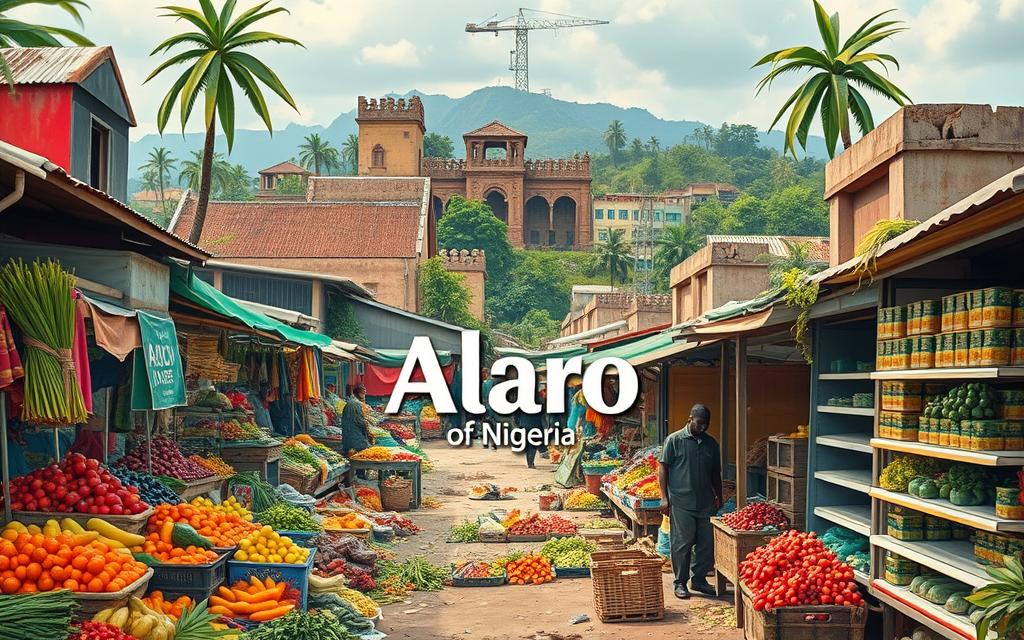
Inflation in Nigeria is a big issue, affecting how people live every day. Prices of necessary goods keep rising, making it hard for citizens to cope. The inflation rate has hit nearly 30%, the highest in almost 30 years13. Several reasons cause this, like national policies and changes in the global markets.
Impact on Daily Life and Purchasing Power
The economic effects of inflation are severe, especially on what people can buy. For example, the price of rice and petrol has soared over the last year13. Food costs alone have jumped by 35%, putting a lot of strain on families.
But it’s not just food that’s more expensive. Despite the cost of living going up, the monthly minimum wage hasn’t changed since 2019, staying at 30,000 naira13. Recent stats show almost 39% of Nigerians live in poverty in 202314. Many struggle to buy basic items, which hurts their life quality.
Government Measures to Combat Inflation
To help, the Nigerian government has tried various things to lessen inflation’s impact. They’ve shared 42,000 tonnes of grains to help with the food shortage13. Around 15 million poor families are getting cash help of 25,000 naira each month13. These steps aim to ease economic pains during tough times.
Yet, the road ahead remains tough. Inflation might reach 33.20% by 202414. Ongoing efforts by the government are vital to protect people’s buying power and stabilize the economy. By understanding inflation’s current state in Nigeria, we get a clear view of its social and economic impact.
Nigerian Democracy: Current Issues and Developments
Nigeria’s political scene is complex, full of challenges and wins. It’s been 23 years of democracy and 62 years since independence. This is impressive compared to earlier republics15. The Fourth Republic has lasted 25 years, after the short-lived First and Second Republics.
The State of Political Affairs
Politics in Nigeria show a mix of voter feelings and big problems. Polls show Nigerians really care about democracy16. But, there are only two main political parties now, the PDP and APC17. The APC took over in 2015, but not much else has changed16.
There are big security problems affecting trust in the government. Groups causing violence have made people feel unsafe for a long time17. Efforts to fight corruption have been made, but corruption has gotten worse. This makes governing harder16.
Election Campaigns and Public Sentiment
With elections coming, people want open government as political issues grow. Surveys show people are losing faith in politics. Many feel their election choices don’t matter much16. The 2011 elections got better, but the 2019 ones were seen as worse15.
Women make up half of the population but are not well represented. With elections near, it’s important to include more women in politics15. This shows a need to rethink how the government and people interact.
Nigerian Celebrities: Cultural Influencers in Media
Nigerian celebrities are key in shaping the country’s culture through entertainment. Stars like Genevieve Nnaji, Burna Boy, and Tiwa Savage show how they lead in trends and norms. Genevieve is known for her acting and fashion, mixing old and new styles18. Burna Boy, winning Grammy awards, also leaves his mark in fashion with his unique looks18. Tiwa Savage makes waves in music and is praised for her sophisticated style18.
Celebs like Wizkid, Toke Makinwa, and Davido also push fashion boundaries with their personal touches. Wizkid mixes everyday looks with luxury, standing out at events18. Toke Makinwa is famous for her trendy, bold style that many admire18. Davido is known for his bright, unique fashion choices, often working with designers for special outfits18.
As Nigerian culture gets global recognition, social media platforms like Instagram are key for showing off style. Celebrities like Osas Ighodaro and Ini Dima-Okojie wow fans with their outfits at events19. Osas wore a standout hot pink dress in Lagos, drawing eyes after the lockdown19. Ini impressed everyone with a custom mini dress, setting new fashion standards19.
This rising spotlight on celebrities boosts Nollywood’s role in keeping culture alive, blending tradition with modern times. Looking into this world, we see new talents coming forward. In 2024, a list highlighted 50 content creators making waves in Nigeria’s entertainment scene20. Among them, Purple Speedy gains huge fame on TikTok and Instagram, while Meshkiey and Papeeyah also make their mark online20.
Nigerian Food: Culinary Traditions and Innovations
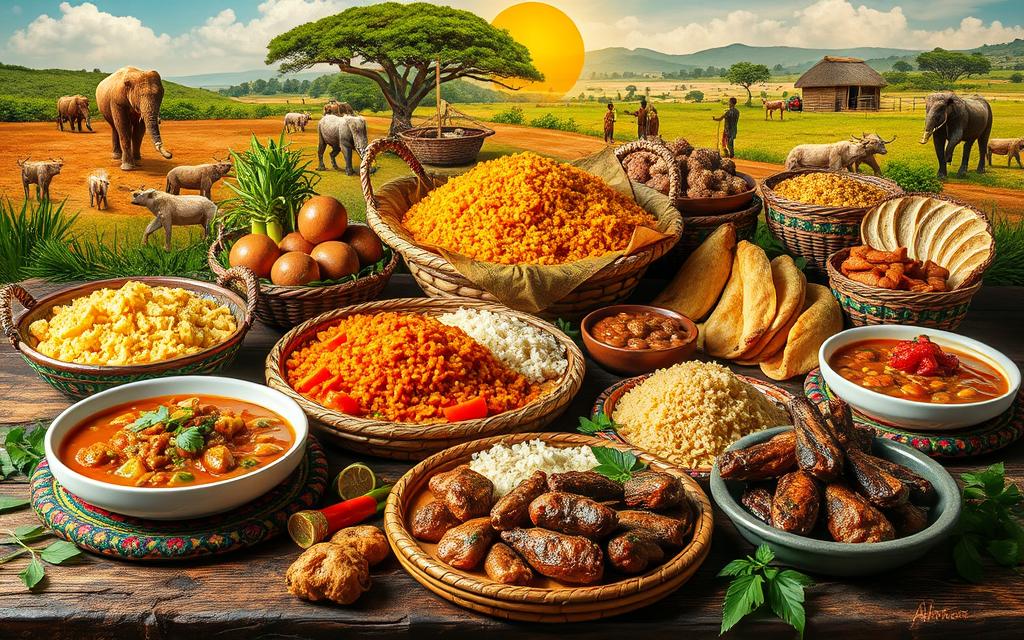
Nigerian food is a rich tapestry of tastes, created by over 250 ethnic groups. The Yoruba, Igbo, and Hausa people add their unique touch to our food culture. Eating together is key, showing unity and reverence for our customs21.
Popular Dishes and Their Cultural Significance
Jollof rice is a festive delight, commonly served at big events. It’s often paired with pounded yam and egusi soup. Meals typically include protein like fish or beef and are flavored with local herbs22.
Soup with tomatoes, onions, and palm oil is a staple in the South. Meanwhile, Northern cuisine includes millet and wheat. Rice dishes are loved nationwide21.
Growing Interest in Nigerian Cuisine Internationally
Worldwide, people are starting to love Nigerian food, thanks to creative chefs. They’re introducing dishes like moi moi and suya to a global audience21. By sharing our food, we celebrate our heritage and showcase our balanced meals. This global curiosity reflects the broad appeal of our food culture and the sense of community it brings.
Nigerian Social Issues: Addressing Challenges
Nigeria is facing tough social issues that deeply impact its people. Problems like insecurity, corruption, poverty, and health crises are all intertwined. They make it hard for society to move forward. An alarming statistic reveals that, on average, 13 people were taken daily in the first half of 2021. This resulted in 2,371 abductions due to rising banditry and kidnapping23. This increase in violence has led to more government spending on security. A big chunk of the country’s budget now goes to fighting these threats24.
Factors like failed governance and deep inequalities in wealth cause more insecurity. This worsens Nigeria’s social problems. The country has a high crime rate, ranking low on the Global Peace Index24. People are scared as insecurity affects them in various ways. Security expert Chris Aluta believes securing safety from crime is crucial24. The fact that over 200,000 people have been forced to leave their homes due to banditry shows urgent action is needed23.
The number of people living in cities in Nigeria is quickly rising. It’s expected that the urban population will double in the next 20 years25. This growth makes existing issues like poverty and poor infrastructure even worse. It adds new challenges for communities. Both government and non-government organizations need to work together. They must take action to improve society and aim for a better future.
| Social Challenge | Statistics |
|---|---|
| Abductions | Average of 13 persons kidnapped daily in early 202123 |
| Insecurity | High crime rate impacting law and order situations24 |
| Displacement | Over 200,000 individuals displaced due to banditry23 |
| Urban Growth | Urban population projected to double in 20 years25 |
Inside Nigeria: Top Trends and Daily Stories
Social media has grown to mirror and mold Nigeria’s digital culture powerfully. It impacts how people view national topics, encouraging varied conversations. Through this, we see these platforms as not just for chatting but also for sparking change.
The Role of Social Media in Shaping Perception
In Nigeria, the digital scene changes fast as key figures use social media to talk about vital subjects. For example, Bobrisky made headlines with Instagram videos, starting wide discussions26. Stories about political leaders also get a lot of attention, like Dino Melaye’s court case verdict26.
Topics about the economy also get airtime on social media. News of a higher minimum wage by a Nigerian governor triggered online debates about earnings27. Likewise, the tragic news of bandit attacks has been shared widely, bringing communities together in grief and a call for action27.
The conversation highlights the deep effects of digital culture in Nigeria. For instance, Netflix’s quiet departure from the Nigerian market shows changes in entertainment and culture, seen in social media reactions27. This continuous social media activity shapes public opinion and indicates big shifts in society, showing the platform’s and people’s power in telling Nigeria’s story.
Conclusion
We have traveled through Nigeria’s exciting stories, touching on its economy, culture, and society. We’ve seen how startups drive growth and sports stars shine worldwide. Nigeria bustles with life, having 36 states and a government led by the All Progressives Congress. President Bola Ahmed Tinubu’s recent rise to power highlights its vibrant yet challenging politics28.
We also dived into social issues, like the grave poverty hitting almost 87 million citizens. But there’s hope in health tech innovations29. These stories help us grasp Nigeria’s role globally. Local media like The Daily Sun and The Punch help share these stories30.
To finish, we highlight the power of community and unity. By staying dedicated and proud of our culture, we can face challenges and grab the opportunities. Let’s work together for a better, united Nigeria.
FAQ
What are some key sectors being transformed by Nigerian startups?
How are Nigerian athletes performing in international competitions?
What contributions does the Nigerian diaspora make to the economy?
Why is local governance important in Nigeria?
What are some of the top tourist attractions in Nigeria?
What factors are contributing to inflation in Nigeria?
How is democracy evolving in Nigeria?
What role do Nigerian celebrities play in cultural influences?
What are some popular traditional dishes in Nigeria?
What social issues are currently affecting Nigeria?
How is social media influencing public perception in Nigeria?
Business
Deepseek Game Changer! AI World in Shock with Breakthrough
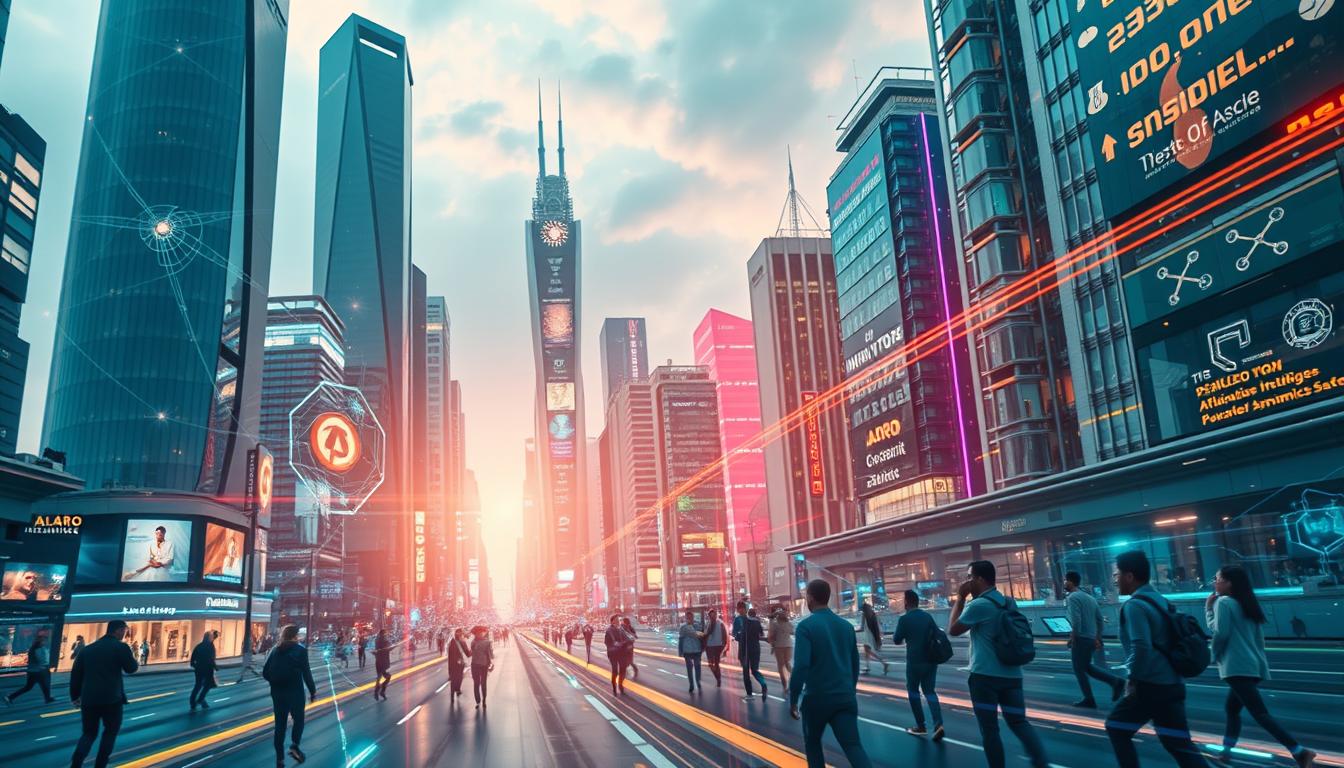
Did you know the launch of Deepseek’s R1 model shook the tech world? It caused American tech firms to lose over $1 trillion in market value. Even Nvidia, a leader in artificial intelligence, felt the hit as investors looked at the market differently. This deepseek game changer! ai world in shock!! event shows how new AI tech is changing our industry.
Looking into Deepseek’s advanced tech, we see it’s more than just numbers. It marks a big step in AI’s evolution. People are noticing, with plans to invest $500 billion in U.S. tech to stay competitive. Deepseek offers R1 at much lower prices than old AI methods. This changes how we think about pricing in a big way.
What R1 can do is still being revealed. It might even do better than models from OpenAI and Meta. To us, it’s more than a tech upgrade. It’s a wake-up call to a new AI era that needs our focus and change. Deepseek is setting the stage for amazing AI possibilities.
Introduction to Deepseek’s Revolutionary Technology
Deepseek is ushering us into a new era of artificial intelligence with its R1 model. This model is a game-changer, shaking up the tech world by challenging big names like OpenAI and Meta. Its success is evident, as it recently became the top free app in the US on Apple’s App Store.
The launch of Deepseek has significantly altered the technology landscape. For example, Nvidia saw its shares fall by 17%, which meant a huge $600 billion loss in its market value. This situation shows the challenges that old companies face in keeping up with innovations like Deepseek, which was developed for just $5.6 million.
Deepseek’s impact goes beyond the current market to affect the future of AI. It’s prompting investors to pour more money into AI technologies in the US, setting up a competition, especially with China. This trend emphasizes the need for US companies to keep innovating to stay ahead.
Deepseek’s popularity isn’t just a fleeting trend. It reveals a genuine need for affordable, effective AI solutions. Companies are using Deepseek to make customer support better and to create content more efficiently. This technology is transforming how businesses operate in many industries.
By applying deep learning in new ways, Deepseek is creating a benchmark for affordable AI tech. It’s starting conversations about making powerful AI tools accessible to more people. This could make the marketplace more democratic, benefiting a wider audience.
Understanding Deepseek: A New Player in AI
Deepseek has quickly become a big name in the artificial intelligence world. Starting as a startup in China, it has attracted lots of attention. It became the most downloaded free app on Apple’s US App Store fast. This shows how much people want new AI technology.
Deepseek built its R1 model with just $5.6 million. This is much cheaper than what big companies like OpenAI spend. This cost-effective strategy makes people wonder about Deepseek’s future money-making potential.
The AI market is changing fast with lots of global competition. Countries like China are spending a lot on AI technology. This is changing the game for big companies. For example, Nvidia’s shares fell by 17%, which means they lost about $589 billion in value. This shows big changes in the AI industry.
Deepseek faces both challenges and chances as it competes in this tough market. With all the intense competition and interest in new solutions, we’re excited to see what happens next in AI.
Deepseek Game changer! Ai world in shock!!
Deepseek R1 is making waves as an ai transformation disruptor. It stands out by blending unique features not seen in current models. By focusing on open-source tech, it welcomes developers and entrepreneurs to join the creation process. This openness lowers the hurdles for those wanting to enter the field. Plus, its development cost, a mere $5.6 million, is much less than the billions spent by big names like OpenAI. This affordability might lead to new, innovative uses of groundbreaking artificial intelligence.
What Makes Deepseek R1 Unique?
Several things make Deepseek R1 stand out. For one, it quickly became the top free app on Apple’s US App Store. This shows that a lot of people are excited about it. The R1’s blend of top-notch performance and user-friendly design attracts many. Its quick growth hints at even more chances to make money as more people show interest.
The Impact on the AI Landscape
Deepseek’s sudden arrival is changing the game in AI. It caused a big stir, making a company like Nvidia lose 17% in market value. That’s almost a $600 billion drop. It shows how new players like Deepseek can challenge the old guard. This change encourages more competition and pushes for more innovation. It might even change the economy worldwide, especially with many countries investing in groundbreaking artificial intelligence.
A Dramatic Shift in Market Dynamics
The introduction of DeepSeek marks a major change in the AI market. When it became the top free app in the US on Apple’s App Store in just a weekend, it caught the attention of big names like Nvidia.
Nvidia’s stock fell by 17%, leading to a nearly $600 billion loss in value. This shows how a new player like DeepSeek can change the game quickly. It offers affordable AI solutions, shaking up the competition.
DeepSeek was cheap to make, costing about $5.6 million. This is much less than what others like OpenAI spend. Despite worries over its cheap production, people are very interested in DeepSeek. This suggests it could make money in the future.
Because of DeepSeek, more money is flowing into AI research and development. This launch shows competition can drive innovation. It also points to a big race in Asia, especially with China’s heavy investment in AI.
DeepSeek’s success is changing the AI industry. Big companies now have to fight harder and think differently. This not just affects these companies, but it’s also changing the whole global tech scene.
| Company | Market Cap Loss | Development Cost | Download Rate |
|---|---|---|---|
| Nvidia | $600 billion | – | High |
| DeepSeek | – | $5.6 million | Most downloaded |
X Factors Behind Deepseek’s Launch Success
Deepseek quickly became the top free app on Apple’s US App Store. This shows how much impact it has. It proves that deep learning tech is changing fast, and Deepseek is leading the way among AI platforms.
Rapid Ascent in App Store Rankings
Deepseek’s swift climb in the app store is a big deal. It shows people are eager for new AI solutions. It got lots of downloads fast, hinting it could make good money. Meanwhile, Nvidia saw its shares drop 17%, losing nearly $600 billion in market value.
This big change is a wake-up call for big companies. They might have to think over their plans and money because of Deepseek’s rise.
Public and Investor Reactions
Investors are looking closely at Deepseek’s low $5.6 million development cost. That’s way less than what big US AI companies like OpenAI spend. There are worries about whether saving so much can still mean top quality.
Yet, many think Deepseek’s win could start a rush of new AI tech investments in the US. This could change what firms focus on and how they compete.
| Factor | Deepseek | Nvidia |
|---|---|---|
| Recent Market Reaction | Most downloaded app on Apple’s US App Store | 17% drop in share prices |
| Market Value Loss | N/A | Approx. $600 billion |
| Development Cost | $5.6 million | Billions |
| Investor Concerns | Potential for monetization | Market share erosion |
| Future Predictions | Increased competitive innovation | Reassessment of business models |
Comparing Deepseek R1 with Established AI Models
In the world of artificial intelligence, comparing new models like Deepseek’s R1 to older ones helps us see their value. The R1 model shines with its new approaches, better metrics, and lower costs. When we look at R1 and compare it to OpenAI’s ChatGPT or Meta’s AI, we find strong reasons why more people pick R1 for their projects.
Performance Metrics Against Competitors
The R1 model has beaten traditional standards set by other models. It can think through things more deeply, searching across 50 websites. This makes it do better than models like ChatGPT, especially when it handles Chinese queries quickly. Let’s look at some main performance points:
| Feature | Deepseek R1 | OpenAI ChatGPT |
|---|---|---|
| Processing Speed (Chinese Queries) | Faster | Slower |
| Model Parameters | 600 billion | 175 billion |
| Web Search Capability | Up to 50 sites | Limited |
Cost Advantages of Deepseek R1
Deepseek’s R1 is a more budget-friendly choice in AI. Making R1 only cost about US$6 million, much less than what big companies like Meta and Google spend. For startups and businesses, R1 offers big savings with its cost. It stands out by lowering the bar for new creators, offering an open model for everyone to use and build on.
Implications of Deepseek’s Open-Source Model
Deepseek’s R1 launch as an open-source model is a big change in AI. It lets developers around the world work together on it. This way, experts can make Deepseek’s AI even better.
Open-source has already made tech better before. R1 could do the same, letting developers improve it without big costs. This could lay the groundwork for new AI breakthroughs.
R1’s open-source model might lower AI costs, making it easier for everyone to use. It has shaken up the tech world, causing big companies like Nvidia to lose a lot in market value.
By working together, developers create a strong community. R1 is great at learning and understanding language, which opens up many chances for new ideas.
| Aspect | Traditional AI Models | Deepseek R1 Open-Source Model |
|---|---|---|
| Cost of Development | High | Fraction of the cost |
| Performance | Competitive | Potentially exceeds rivals |
| Innovation Speed | Slower | Accelerated through collaboration |
| Market Impact | Stable | Shift in investor confidence |
| Accessibility for Developers | Limited | Highly accessible |
The Economic Impact of Deepseek’s Entrance
Deepseek’s arrival has changed the game in tech. The market values of big tech companies have shifted a lot. Investors are now paying close attention to these changes. They’re eager to see how this shakes up the competition.
Market Value Changes Among Tech Giants
When Deepseek joined the AI scene, it shook up the market. For example, Nvidia’s stock fell by 17%, losing almost $600 billion in value. These big changes show how new players can really disrupt the market.
Potential for Future Investments
Tech companies are hustling to adjust to these new challenges. There’s a lot of buzz about investing more in AI. Deepseek can make advanced AI for just $5.6 million. This fact is making investors think twice about where to put their money.
| Company | Market Value Decline ($ Billion) | Percentage Stock Drop | Cost of AI Model Development ($ Million) |
|---|---|---|---|
| Nvidia | 600 | 17% | 1.2 |
| Other Tech Giants | Trillions (combined) | N/A | N/A |
As the competition changes, big companies need to think differently. They have to be innovative while still pleasing their customers. Deepseek’s impact is huge, spelling a new chapter for tech investment.
Insights from Industry Experts on Deepseek
Various industry experts share their thoughts on how Deepseek is changing the AI world. They believe Deepseek’s success is a warning to well-known companies. With the AI area getting more crowded, they say companies must be quick to bring new ideas if they want to stay in the game.
Deepseek was made for just $5.6 million, much less than what big companies like OpenAI spend. This low-cost way of doing things is making people take note. Experts think this could mean new tech might pop up without costing a lot.
Experts are talking a lot about how fast Deepseek is being downloaded. Becoming the top free app on Apple’s US App Store in just a weekend shows people are really interested. This might lead to new ways to make money that could change the market.
We’ve put together more thoughts from experts in a table below. It shows what they think Deepseek means for the future of AI:
| Expert | Insight |
|---|---|
| Market Analyst | Notes the rapid download rate as a sign of aggressive user interest, which may drive future growth. |
| Tech Entrepreneur | Expresses that traditional companies must innovate faster to combat competitive pressures from newcomers like Deepseek. |
| Finance Expert | Highlights Nvidia’s shocking market cap drop of nearly $600 billion as a reflection of the shifting landscape. |
| Data Scientist | Concerned that AI’s evolution could outrun the compliance measures of established players. |
Deepseek’s market entry has big effects. As experts look into it, we anticipate more talks on how it will influence AI tech and leading companies.
Cultural and Global Context of AI Advances
In today’s fast-changing tech world, knowing the cultural impact of AI growth is important. Countries are vying for dominance in this field, with the US and China at the forefront. This competition is shaped by their cultural values and national goals, affecting tech advancements.
International Competition in AI Technology
DeepSeek’s AI assistant launch has shaken the global tech scene, highlighting fierce global rivalry. Nvidia saw a massive $593 billion market value drop after DeepSeek’s breakthrough. Stocks fell by 17% in just one day. This shows how fast things can change, shaking up the usual power balance.
DeepSeek’s AI overtook ChatGPT in downloads in big markets like the US and the UK. This quick success shows how big companies are worried. They fear losing ground to new, advanced technologies.
The Philadelphia semiconductor index had its biggest fall since March 2020. It shows the market’s reaction to the changing competition. Nvidia’s struggles underline the importance of being flexible. Today, the tech industry’s growth is fueled by innovators and new ideas.
This shift towards a more open tech industry is clear. As nations pour money into AI, the global scene is changing. The fight is now about more than just tech skills. It’s also about being sustainable and ethical in tech development.
Environmental Considerations in AI Development
The rise of AI technologies like DeepSeek raises environmental impact worries. As we make more AI, we use more energy. This causes our carbon footprints to grow bigger. This calls for a move to sustainable technology.
To avoid harming our planet, we must look at these challenges closely. If we don’t, we might cause damage to Earth.
AI needs a lot of power for its data centers and computations. Developers should think about their environmental effect. With AI models like DeepSeek’s R1, which has 600 billion parts, we must watch out for bad outcomes.
Competition might make the tech world focus more on being green. Companies will likely try to be more eco-friendly. They’re seeing that people now want innovations that are kind to the Earth.
| AI Model | Development Cost ($ Million) | Parameters (Billion) | Environmental Impact Rating |
|---|---|---|---|
| DeepSeek R1 | 5.6 | 600 | Low |
| OpenAI Models | Over 1000 | Varies | High |
As new innovators pop up, we need to work together for sustainable technology. By joining forces, we can make AI that’s good for our planet. This way, AI’s benefits won’t cost us the Earth.
Future Trends Following Deepseek’s Breakthrough
Deepseek’s story opens up thrilling possibilities for the AI world. We see future trends that will shape this industry by studying this big step forward. Things like market changes, new ways of investing, and rules will be key in the industry’s growth.
Predictions for the AI Industry Landscape
Following Deepseek’s arrival, we foresee important trends affecting the AI field. With major tech companies like Nvidia losing over $1 trillion, there’s a loud call for new ideas. This big drop shows we must be creative and strong to deal with market ups and downs.
There will likely be more spending on tech setups as people aim to stay ahead. A plan to invest $500 billion, suggested by former President Donald Trump, points to boosting our tech strength. This plan is about making sure American companies are strong players worldwide.
With competitive pricing, Deepseek’s R1 model could make high-end AI tools more available. This move could help startups grow, making a space full of new ideas. Its open-source approach might also speed up global teamwork, pushing faster progress in AI.
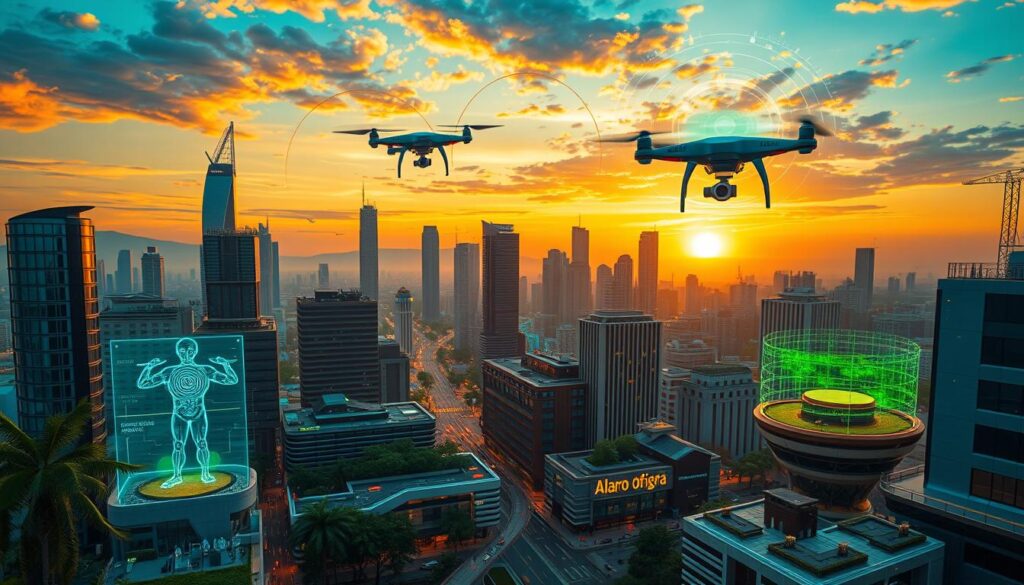
Early tests show R1 model’s impressive speed and efficiency, hinting at a boom in AI investment. Firms might change their strategies, focusing on the newest tech to stay in the game. The industry might see new partnerships, all aiming to be top in the global market.
The industry is at a turning point, looking at innovation just as much as quality. Even though Deepseek’s fast growth sparks sustainability worries, these issues often lead to more breakthroughs. It’s crucial to understand these trends for anyone navigating the changing AI scene.
Municipal Responses and Government Policies on AI
As AI competition heats up, with newcomers like Deepseek on the rise, cities and governments are responding. They see the importance of keeping up with fast tech changes. Their goal is to support innovation while keeping us safe.
Some areas are acting by balancing encouragement of tech growth with ethical practices. Cities are teaming up with tech companies for AI tests. They also set rules for AI’s safe and fair use. These efforts show cities understand AI’s big role in different fields.
At the national level, the Biden administration is checking its AI policies. They aim to fix past policies that might have hurt US tech progress. This is to keep up with global tech advancements, including those influenced by Deepseek.
For instance, some rules on tech exports faced criticism for not being effective. This has led to rethinking how policies are made. The goal is to create a system that values both safety and advancement. This requires open talks between governments and tech companies.
| Government Action | Description | Impact |
|---|---|---|
| Incentives for AI Startups | Local governments offer tax breaks and grants | Boosts innovation and attracts talent |
| Regulatory Frameworks | Establish guidelines for AI ethics and safety | Promotes responsible AI development |
| Review of Export Controls | Reassessing restrictions impacting U.S. competitiveness | Potential for increased market strength |
Challenges Faced by American Tech Companies
The tech industry is facing big challenges today. DeepSeek’s rise as the top free app on the US App Store shows a major change in what apps people like. It makes everyone wonder how the big tech companies will deal with this new challenge.
DeepSeek’s impact on Nvidia was huge, with a 17% drop in shares. That means Nvidia lost almost $600 billion in market value. This big loss shows how unpredictable the tech sector can be. DeepSeek was made with only $5.6 million, which is nothing compared to the billions spent by big companies like OpenAI. Now, these big companies might find it hard to keep up.
American companies are also facing tough competition from overseas. For example, China is investing a lot in AI to get ahead by moving faster and spending less. American companies might need to rethink how they spend money and develop products to stay in the game.
DeepSeek’s quick popularity shows there are big chances for making money and growing that American companies shouldn’t miss. But, experts say that the usual big names in AI might have a hard time adjusting to new competitors like DeepSeek.
The excitement over DeepSeek has also caused a big drop in the market value of tech stocks in the US and Europe, almost $1 trillion. This drop makes people question the worth of the biggest US tech companies. Looking ahead, the key will be how fast we can identify and tackle these new challenges.
Deepseek and the Future of Artificial Intelligence
Emerging players like Deepseek are changing the future of artificial intelligence. Their new ideas are pushing the whole industry forward. This makes even the big companies think hard about their own plans.
Deepseek is shaking things up, showing us that people want different and better options. Big AI companies are feeling the heat. They need to keep up with the fresh ideas that startups are bringing.
The race in AI technology emphasizes the need for being eco-friendly. New apps are being made with sustainability in mind. This is important to customers today and helps AI grow in a responsible way.
Analysts believe Deepseek could lead to more competition and innovation. They think the whole AI scene will focus more on what users want and keeping things affordable. We’re looking at a future filled with exciting possibilities because of these changes.
This tough competition and rush of new ideas promise a better AI world. We’re at a point where big shifts in technology are about to happen. Newcomers like Deepseek might be key in deciding the future of AI.
Conclusion
Deepseek changes the game in AI, starting a tech revolution. Its R1 model reshapes our view on AI’s potential, breaking new grounds. This leads to growth across many areas.
The rise in interest for Deepseek shows a major shift in tech. It presents a challenge to existing models. With Deepseek, the focus on artificial intelligence is growing strongly.
We expect tough competition as companies strive to keep up with Deepseek. The need for smart solutions is increasing. This will likely bring a stronger emphasis on sustainable AI development.
Business
TikTok Denies Rumors of Sale to Elon Musk as Fiction
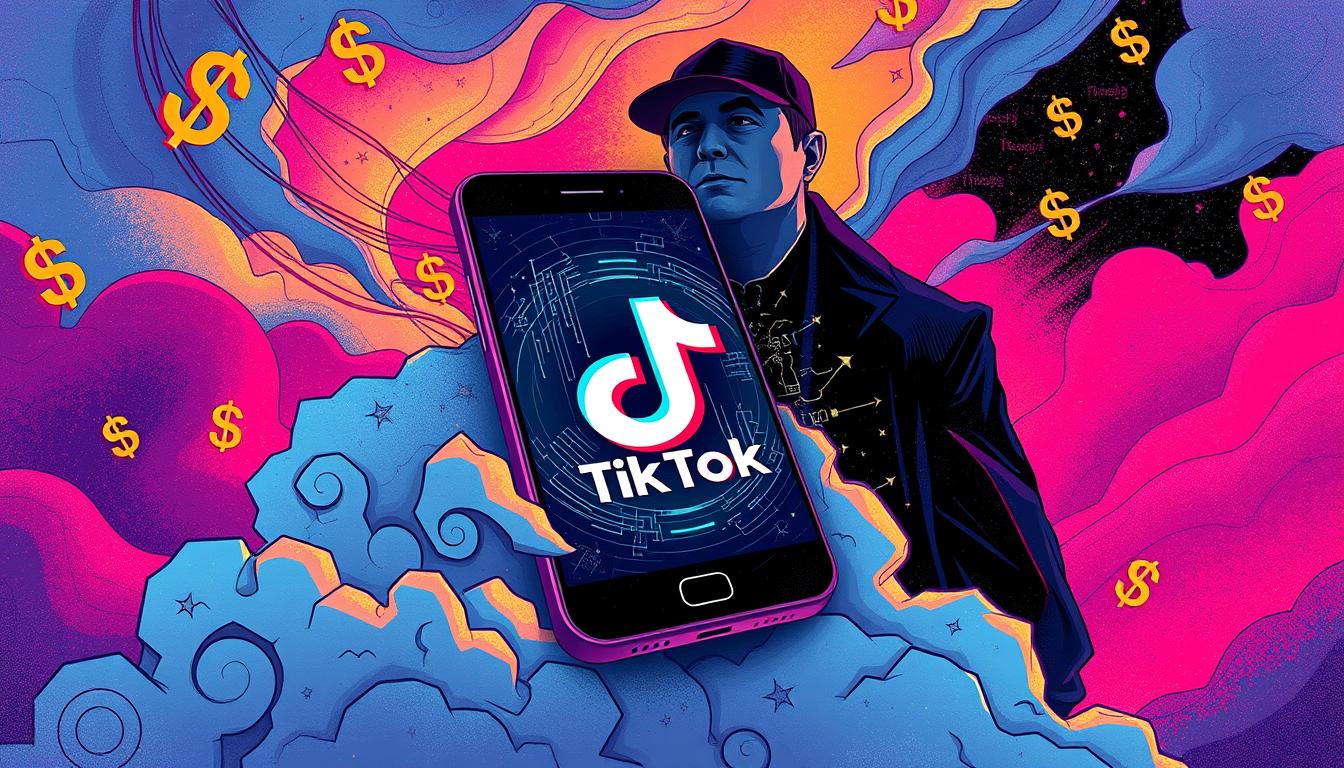
Imagine waking up to the internet buzzing with claims. Elon Musk, behind Twitter (now X) and SpaceX, wants to buy TikTok. Rumors quickly turned into a frenzy of viral talks.
In a world where rumors fly fast, the news grabbed everyone’s attention. The thought of Musk owning TikTok seemed both amazing and possible. This sparked a lot of reactions.
But TikTok quickly stepped in to stop the rumors. The company said the stories of its sale to Elon Musk were totally false. They called the buzz “pure fiction,” ending the speculation1.
This wasn’t the first time we’ve heard such big rumors. In the past year, TikTok has been in the news for security concerns. There was talk of a ban unless it was sold to a company not based in China by January 19th, 20251.
As talks of a TikTok ban grew, other platforms like Xiaohongshu became popular. They even reached the #1 spot on the US App Store1. Despite all the noise, TikTok made it clear — there’s no sale to Elon Musk.
Introduction to TikTok and Recent Rumors
TikTok has become a top site for short-video fun, thanks to its owner ByteDance. It has won the hearts of millions around the globe. Recently, a buzz hit the internet with talks of Elon Musk maybe buying TikTok2. This news spread fast, making many people talk about it.
Now, TikTok’s impact in the social media world is huge. It’s key to ByteDance’s success. Often, it’s the target of various rumors. The buzz about Elon Musk possible buying it is a prime example. Such talks show how powerful social media can be in stirring conversations. It sparked a lot of excitement and speculation about big tech deals.
TikTok’s Official Statement on the Rumors
TikTok quickly responded to the rumors that Elon Musk was buying the company. The Company Rebuttal said there were no talks with Musk or anyone else about selling. They stressed their goal to keep growing independently, all over the world.
TikTok’s CEO, Shou Zi Chew, addressed the matter, stating, “We stand firm in our dedication to providing a secure platform for our users, free from external acquisition influences.”
People had mixed feelings about TikTok’s statement. Some were happy TikTok planned to stay independent. But others were not sure what might happen in the future. This shows the tough competition and attention in the world of social media.
Rumors can greatly affect companies. For instance, in 2020, President Trump threatened to ban TikTok unless it was sold to a US company3. This led to big worries and legal issues for TikTok, including trouble with lawmakers and court cases4. Facing these challenges, TikTok needs strong responses to keep people’s trust.
TikTok saying it wants to stay independent is very important. Their clear message has eased some worries for now. But in the fast-changing tech world, TikTok must stay alert and communicate well. This is key for their future.
History of TikTok and Elon Musk
TikTok started in 2016 and grew fast. It’s part of ByteDance, a Chinese company. It quickly became loved for its music, dance, and video content. It has been downloaded millions of times all over the world. Recently, rumors about its sale have stirred up a lot of talk.
Elon Musk often finds himself linked to TikTok talks. He’s known for Tesla, SpaceX, and buying Twitter in October 2022. His actions in tech news always catch attention. This makes him a person of interest in the TikTok sale story.
In December 2022, the Supreme Court decided TikTok needs a new owner by January 19, 2025. If not, it could be banned in the US. This has a huge impact on American TikTok users1. Elon Musk is considered a possible buyer, which makes the situation even more fascinating.
The ban talks have made apps like Xiaohongshu more popular. It even reached the #1 spot on the US App Store. This shows the big effects of sale rumors and government actions. Technology news is closely watching these changes.
The interaction between TikTok’s growth and Musk’s career is interesting. It provides a good look at what might happen next. People following tech news are eager to see what happens with TikTok and its users.
Why the Rumors Spun Out of Control
Many people are talking about TikTok possibly being sold to Elon Musk. Musk’s habit of buying companies has everyone watching closely. This attention makes people speculate, especially in the digital and investment worlds.
TikTok’s power worldwide adds fuel to the fire. It’s often in debates about politics and data security. Because so many people use TikTok, news about it spreads fast.
There’s worry about the business world in 2025. Experts like Adrian Negrescu think it’ll be a tough year. They predict less spending, which is bad for businesses, and fear many could go bankrupt5.
Over 1,000 investors feel now is not the time for new investments5. Analysts, however, see chances for companies that can adjust. This mix of views, plus non-stop news on social media, means rumors keep growing.
The Impact of Online Rumors on Businesses
In the digital world, online rumors can quickly hurt a company’s image and finances. The tech world sees many rumors about company sales, affecting stock prices and stability. For example, when rumors spread about TikTok being sold to Elon Musk, it caused a lot of trouble. This situation tested TikTok’s relationship with its users and even its stock value. Both investors and users started to doubt, leading to big changes in the market’s trust6.
Rumors can make or break user interest in a company. Take Nvidia, which suffered from US policy changes on AI chip exports. This pushed their customers to think about moving to competitors2. TikTok faced a similar challenge. It had to work hard to win back the trust of users and investors by being open and honest3.
The effect of rumors can be seen in numbers too. Take Bank of Baroda’s deposit schemes. They offer special rates to keep users interested during unsure times6. This shows how important it is for companies to make smart choices to keep the market calm amidst rumors.
Looking at power outages like those by PECO also helps us understand user trust3. In short, online rumors can shake up different industries. Companies must work carefully to keep everything balanced and maintain trust.
TikTok says report of potential sale to Elon Musk ‘pure fiction’
TikTok has shot down rumors of being sold to Elon Musk, labeling the idea as ‘pure fiction’. This move is to keep the market stable and assure its many users. By clearing up these sale claims, TikTok wants to stay open and trusted.
The baseless rumors had sparked a lot of buzz, causing confusion and worry. By saying the report of Elon Musk buying TikTok is ‘pure fiction’, it aims to calm everyone down. TikTok’s quick action shows its dedication to stop false information effectively.
When faced with rumors, it’s vital for companies to react quickly to protect their place in the market. TikTok’s immediate and clear stance reassures its community and investors. It shows the platform is focused on growing and innovating, ignoring unfounded claims.
The Role of Social Media in Spreading Rumors
In our digital world, social media is key in sharing info. It’s powerful but can also harm. Rumors spread fast, thanks to popular users and public guesses. This makes it hard to know what’s true. About 65% of folks bump into rumors on platforms like Facebook often. And 85% think social media makes rumors fly faster7.
When influencers talk about rumors, people listen. If a followed personality shares a rumor, 44% might believe it. This shows how vital social media is for spreading real and fake news. Sadly, 71% have passed on fake news without realizing it. Viral stories often mix fact and fiction7.
Sites like TikTok are breeding grounds for rumors. Influencers here can make big waves, even with no proof. For instance, when rumors said Elon Musk might buy TikTok, it caused a huge stir. Yet, there was no real proof7. Such stories can badly hurt reputations. In fact, 1 in 4 rumors on social media can damage like this7.
Analysis of TikTok’s Market Position
TikTok’s standing in the digital media world remains strong, despite some rumors. The app has used its smart algorithms to keep a lot of users around the world. Our study shows that people keep using TikTok a lot. This keeps TikTok important in tech news.
TikTok is doing well in the market. It kept its financial strength over the last day. We saw a small price change from ₹86.21 to ₹87, which is very steady. Also, its market cap went up by ₹6,17,76,64,522. This shows TikTok can hold its ground even when tech changes happen8.
Looking at the past week, TikTok stayed stable. On January 13, 2025, its price was ₹86.61. The total sales were huge, and its market value was great8. The day before, the price was a bit lower. Yet, its market value and sales were still strong8. This tells us TikTok can keep up in a tough market.
Overall, TikTok is doing well because of its new ideas and keeping users interested. As the tech world changes, TikTok is expected to stay at the top. It’s a leader among digital platforms, thanks to its smart moves.
Elon Musk’s History with Acquisition Rumors
Elon Musk is well-known in the tech world, often linked to big acquisition rumors. These stories can shock the stock market and get people guessing about what will happen next. One big event was in 2018 when Musk thought about taking Tesla private. This move got a lot of media attention and made regulators take a closer look9. Musk’s words and actions can really move the market.
In the news recently, Bloomberg said on January 14, 2025, Musk might want to buy TikTok’s U.S. operations10. This came up right before a big deadline on January 19, 2025, for TikTok to settle its issues with the U.S. government10. With a new president in office, there’s more focus on tech companies from other countries10.
Musk’s interest in businesses shows in the bold, different ways he handles things. Experts think buying TikTok could mean big changes for the app. This might upset some users10. It’s like when he bought Twitter and then changed a lot of the rules right away9.
Musk’s way of dealing with rumors about buying companies is interesting to watch. His actions and words can shape the way people and the market react9. Musk has a knack for swaying tech and business worlds, making him a standout figure.
TikTok’s Strategic Plans Ahead
TikTok is setting big plans for its future to keep growing. It aims to get better at technology and reach more people around the world. This will help it stay ahead in the world of social media. TikTok is working on cool new changes to make users enjoy the app more and keep it running smoothly. It is believed that TikTok’s business in the US is worth a lot, showing how important it is in the market11
TikTok wants to make its app know you better by using smarter AI. It’s also looking into fresh features for all kinds of users. The app is planning to attract even more users not just in the US but also in countries like India, Switzerland, and Canada12. This shows TikTok’s aim to be a top name in the digital world.
A new US law could make TikTok’s owner, ByteDance, sell the app. This puts TikTok in a tough spot. But, the app has plans to face these tough times. Even with these issues, an investor is sure that TikTok will keep growing12.
What This Means for TikTok Users
TikTok users are deeply concerned about the stability of the platform. Recent laws aim to ban TikTok unless it changes ownership. This poses a big worry for its users9. The ban could start on January 19, creating a tight deadline for users and creators9. TikTok became very popular in the U.S. in 2020, sparking national security worries4.
TikTok user reactions vary, with some fearing for their data privacy. They’re worried about TikTok’s links to China and its security risks9. Creators are looking at other apps like Lemon8 as TikTok faces a ban9. This ban might mean TikTok disappears from Apple and Google stores, impacting many users4.
TikTok’s future and how users interact with it are linked to these events. FCC Commissioner Brendan Carr expressed concerns over TikTok for two years4. These issues affect the entire tech world as it tries to meet expectations and follow laws. User reactions are key in deciding what happens next with platforms like TikTok.
Many in our user community are stressed about the economic impact of a TikTok ban. An assistant professor warned that the ban could badly hurt creators and small businesses9. With creators moving to new platforms, this shows a big change and adjustment period in social media.
The Effect on TikTok’s Competitors
TikTok’s rivals are closely watching its latest moves. They’re ready to change their strategies. In the fast-paced world of social media, any slip by TikTok is a big chance for its competitors. Instagram and Snapchat, for instance, might boost their features and draw more users if TikTok falters.
There’s a lot of talk in the tech world about TikTok’s future. This is because the US wants TikTok’s owner, ByteDance, to sell or close it. The app could be worth up to US$50 billion13. It’s important to watch how these changes affect the social media market.
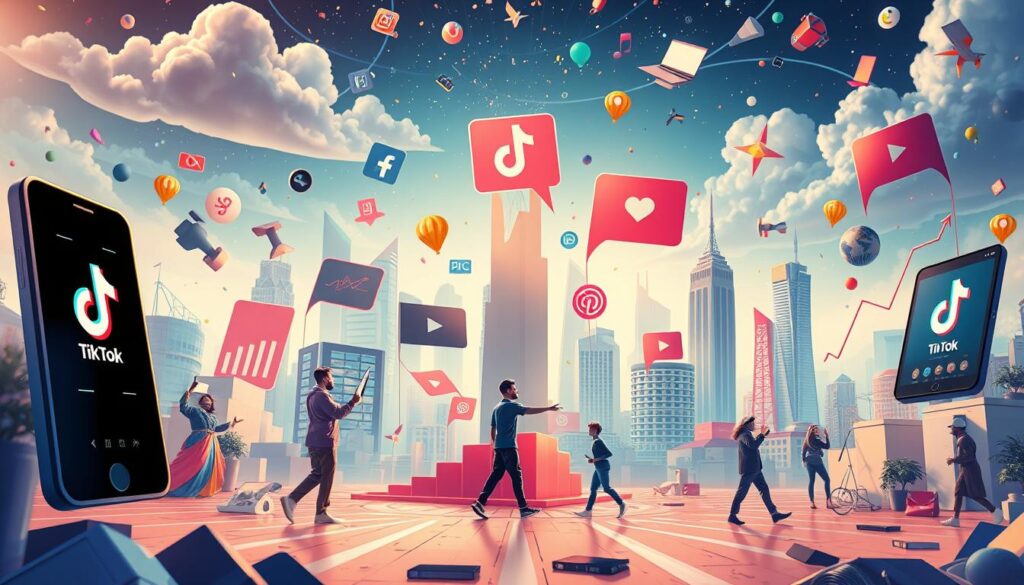
Social media giants are using this chance to roll out new features. Snapchat has Spotlight, and Instagram has Reels, both similar to TikTok. They aim to attract TikTok’s users as the app faces more scrutiny13. This shows how important it is to be quick and adaptable in this industry.
Keeping up with competitors is key for all social media platforms now. What’s happening with TikTok will influence the whole industry. Everyone must keep an eye on these shifts to do well13. Watching the trends closely will be crucial.
The Role of ByteDance in This Situation
ByteDance, the owner of TikTok, plays a key role in dealing with current challenges. The U.S. Supreme Court has given TikTok until January 19, 2025, to find a new owner that isn’t based in China. This affects millions of users in America1. ByteDance’s choices are crucial now to keep TikTok on top and handle global concerns.
Despite worries about TikTok being owned by a Chinese company, ByteDance is working hard to build trust1. The speculation about who might buy TikTok, like Elon Musk or MrBeast, shows how complex the situation is. MrBeast, known for his huge online following, highlights the significance of the deal talks1.
To truly get ByteDance’s stance, we need to look at how they’re trying to make TikTok stronger. While these talks go on, Xiaohongshu (RedNote) became very popular in the US, showing the competition is fierce1. ByteDance says it’s not selling, showing they want to keep control and tackle the issues head-on.
Insights from Technology News Experts
Top experts in tech share their thoughts on how rumors might change the global tech scene. They point out how the possible TikTok ban in the U.S. is causing tension. This is a crucial time for TikTok, a part of ByteDance, as it might be removed from Apple and Google’s app stores. This could lead to big changes in how the tech world operates4.
The rise in attendance at major tech events like CES 2025 shows the power of in-person meetings. For example, over 6,000 people listened to Jensen Huang at CES 2025, which is more than the 5,000 attendees at past events like WWDC3. This trend of live events gaining popularity can also be seen in other areas, like Taylor Swift’s Eras tour3.
A deep dive into investment activities reveals lots of action. Large investors are short selling because of the unstable market, with the dollar and rupee showing big changes14. Yet, firms like Tata Technology and Bajaj Housing Finance are still doing well, proving their strength even when the market is rough14.
Tech companies must quickly adjust to new rules and market swings. The differences between Zomato’s success and Swiggy’s financial challenges highlight the variety in capital investment outcomes. These variations can point the way for future business strategies14.
In conclusion, our experts stress the need for companies to adapt and manage their tech wisely. How TikTok handles these difficult rumors and possible changes will affect the whole tech industry4.
Conclusion
In conclusion, the rumors about TikTok’s sale to Elon Musk were not true. However, this event highlights how quick news can change in the tech world. The speed at which stories spread on social media shows us how public views and the future of companies can shift quickly. These changes were clearly seen when the false reports came out.
Looking into TikTok’s responses and Musk’s past, we learn a lot about how rumors grow. The role of ByteDance and the tech industry plays a big part in understanding why these false stories pop up. It’s very important for investors and users to tell real news from fake news, experts say.
Our final takeaway is how digital marketing and tech news can alter what people think on a large scale. Staying up-to-date is the best way to not be fooled by false rumors online. This event teaches us to always check the facts carefully. This helps us keep our grasp on reality strong, even when false stories spread online15316.
Source Links
- https://tribune.com.pk/story/2522005/mrbeast-might-buy-tiktok-to-prevent-us-ban-will-he-save-the-app-from-shutdown – MrBeast Might Buy TikTok to Prevent US Ban – Will He Save the App from Shutdown? | The Express Tribune
- https://www.indiatoday.in/technology/news/story/us-announces-restrictions-on-exporting-ai-chips-how-the-move-can-impact-india-and-global-tech-industry-2664446-2025-01-14 – US announces restrictions on exporting AI chips: How the move can impact India and global tech industry
- https://daringfireball.net/ – One Bit of Anecdata That the Web Is Languishing Vis-à-Vis Native Mobile Apps
- https://bgr.com/business/tiktoks-wild-ride-how-the-hottest-social-media-app-found-itself-on-the-brink-of-a-us-ban/ – TikTok’s wild ride: How the hottest social media app found itself on the brink of a US ban
- https://www.afaceri.news/cum-va-fi-anul-2025-in-materie-de-afaceri-un-analist-da-raspunsul-anul-celor-ce-vor-avea-curaj/ – No title found
- https://economictimes.indiatimes.com/wealth/invest/bank-of-baroda-liquid-fixed-deposits-how-you-can-get-higher-returns-with-easy-partial-withdrawal-facility/articleshow/117225656.cms?UTM_Source=Google_Newsstand&UTM_Campaign=RSS_Feed&UTM_Medium=Referral – Bank of Baroda Liquid Fixed Deposits: How you can get higher returns with easy partial withdrawal facility
- https://www.caledonianrecord.com/news/national/california-governor-spars-with-musk-over-wildfire-lies/article_c84b457b-025b-5620-9ce7-0909a95ef9b1.html – California governor spars with Musk over wildfire ‘lies’
- https://www.latestly.com/cryptocurrency-prices-in-india/20250114/tether/ – Tether (USDT) Cryptocurrency Price in India today (14 Jan 2025): Check Latest Cryptocurrency Tether Price today in INR
- https://www.independent.co.uk/news/world/americas/china-tiktok-ban-elon-musk-b2679002.html – China considering TikTok sale to Musk: Report
- https://www.lafm.com.au/trending/entertainment/elon-musk-rumoured-as-potential-buyer-for-tiktok-us-amid-ban-threats/ – TikTok’s future hangs by a thread. Elon Musk is in the mix—will he save it or change it forever?
- https://www.spacedaily.com/reports/China_exploring_possible_sale_of_US_TikTok_to_Musk_report_999.html – China exploring possible sale of US TikTok to Musk: report
- https://www.yahoo.com/news/tiktok-responds-rumors-china-wants-030119538.html – TikTok responds to rumors China wants to ask Musk to buy platform: ‘pure fiction’
- https://www.nzherald.co.nz/business/china-exploring-possible-sale-of-us-tiktok-to-musk-report/LGHKHICCQBHVTMDXIWQHA3Y5AE/ – China exploring possible sale of US TikTok to Musk – report
- https://m.economictimes.com/markets/expert-view/fpi-selling-pressure-may-persist-due-to-rupee-depreciation-deven-choksey/articleshow/117224353.cms – FPI selling pressure may persist due to rupee depreciation: Deven Choksey
- https://www.aol.com/barack-obama-net-worth-2023-190152420.html – Barack Obama’s Net Worth in 2024: How He Made His Money
- https://knowinsiders.com/netflix-in-february-2025-full-schedule-of-new-movies-tv-series-and-specials-42654.html – Netflix in February 2025: Full Schedule of New Movies, TV Series, and Specials
Business
10 Game-Changing Trends for Global Economy 2025
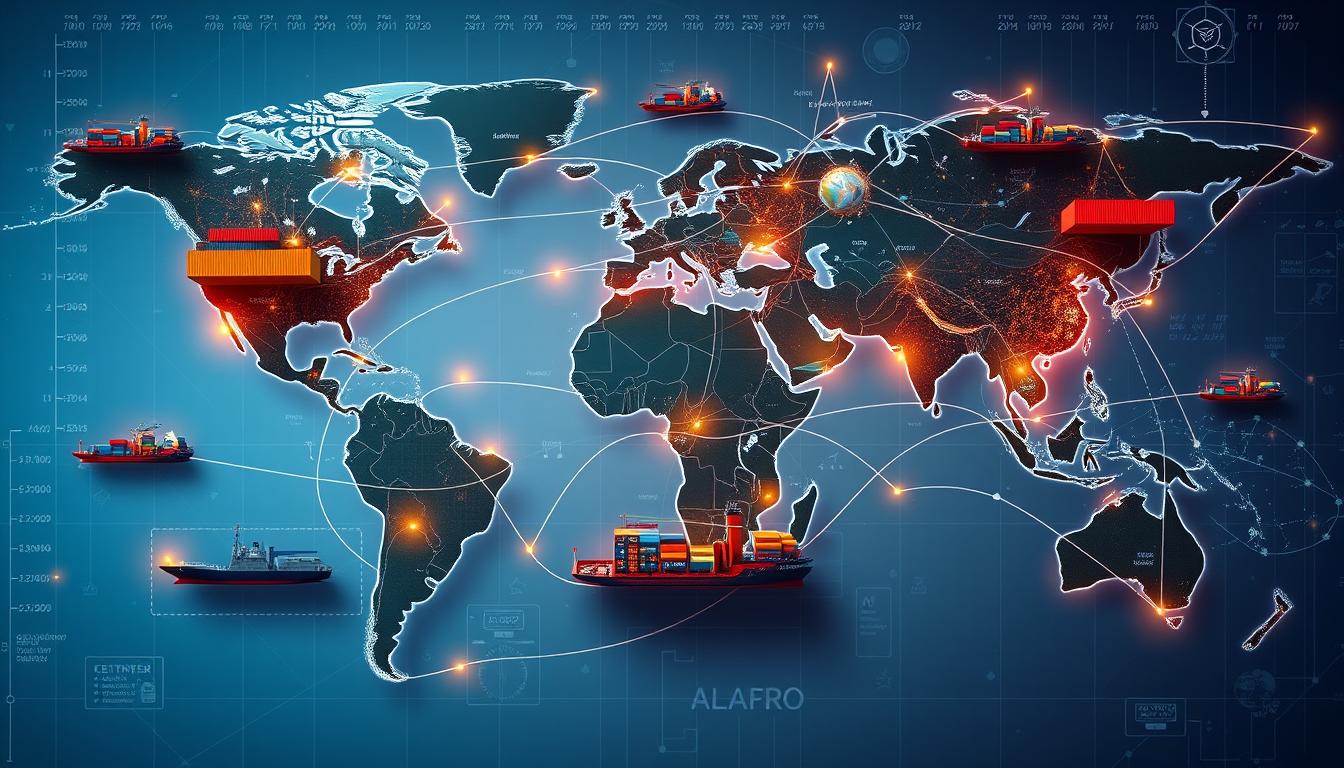
As we near 2025, we face a big question: are you ready for trends that will change the global economy? These changes will bring both huge possibilities and big challenges. They include renewable energy and digital changes focused on users, changing industries worldwide, especially in Nigeria. It’s key to understand these changes as they affect jobs and the global effort to overcome difficulties and find opportunities in these changes.
Experts say the Nigerian economy will stabilize by the third quarter of 2025. This makes now the perfect time to get ready1. The move towards sustainable practices, like Suzuki’s switch to clean energy, marks the beginning of an innovative era2.
Keep an eye out as we dive into trends that will deeply affect the global economy’s future.
The Rise of Renewable Energy Solutions
Renewable energy’s importance is growing as we fight climate change more. By 2025, leaders and businesses will focus on being clear and accountable. This will lead to big changes in how we use energy. Policies will start to fine fossil fuel companies for harming the environment. This creates a race for better fossil fuel alternatives3. Making these changes cuts down harmful emissions and opens doors for investing in clean energy technology.
Thanks to their lower costs and easy access, solar and wind energy are more popular than old energy sources. As countries aim to be more eco-friendly, they’ll invest more in renewable energy. This creates chances for Nigeria’s energy market to grow and adapt.
Renewable energy does more than just create power; it changes how we think about energy. This puts countries like Nigeria in a spot to lead the green revolution. By focusing on clean energy technology, they can grow their economy in a green way. This helps save our planet for future kids, while fighting climate change.
User-Centric Digital Transformation
The digital economy is evolving fast. Now, businesses focus on making digital transformations with the user in mind. By 2025, Nigerian companies will aim for personalized experiences. This is because today’s consumers expect more. E-commerce and digital channels require a new way to connect with customers.
Dr. Leo Stan Ekeh believes Nigeria will see economic growth by the third quarter of 20251. This growth will push companies to adopt new tech. It will help improve how users experience their services. With breakthroughs in AI and data analysis, businesses can better understand what their customers want.
For companies looking to succeed, a detailed digital transformation plan is key. Such a plan must focus on the users. This approach helps businesses stay relevant and competitive in Nigeria. Adapting to these changes will meet customer needs and aid companies in a global setting.
| Year | Projected Economic Zone | User-Centric Initiatives |
|---|---|---|
| 2023 | Initial Transition | Increase in personalized marketing |
| 2024 | Building Platforms | Enhancements in e-commerce experiences |
| 2025 | Comfort Zone | Broad adoption of AI-driven user analytics |
Focusing on user-centric models does more than just improve user experience. It keeps businesses competitive in Nigeria’s digital market. Companies that quickly adapt to these trends will benefit greatly. They’ll be able to meet the growing demand for cutting-edge solutions.
In conclusion, making business strategies with users at the center is a journey. It leads to growth and staying relevant in a changing digital world. The ability to adapt well will set apart the leaders from those falling behind in the digital age45.
10 Game-Changing Trends Set to Transform the Global Economy in 2025
By 2025, several key trends will change the global economy. These include an emphasis on going green. Industries are recognizing their duty to the planet. This shift towards sustainability shows in the rising use of renewable energy, especially in Nigeria.
Another major shift is due to tech innovations. These changes help companies work smarter and serve their customers better. As tech transforms how we do business, companies must adapt to stay ahead.
In Nigeria, the need for digital skills in the workforce is growing fast. There’s also a big push for sustainability, expecting major investments in the area. This includes a huge climate change fund that could provide $75 billion over the next 25 years6.
For lasting growth, companies and governments must embrace these shifts. By doing so, they can deal with the complex future of the global economy.
These trends could also shape Nigeria’s future economic plans. Sectors like tech and green energy are key for better economic outcomes.
Being aware of these changes is crucial for planning ahead. A future-focused mindset will be a big advantage as we move towards 2025.
Nigeria has a lot to gain from these global trends. By joining these efforts, it could play a big role on the world stage7.
Shifts in Global Trade Dynamics
Looking ahead to 2025, global trade’s landscape is changing fast. The rise of regional trade deals will greatly affect international markets. This will lead to big economic shifts. Nations like Nigeria, which are resource-rich and growing fast, must adapt to these new trade relations. They should use their unique strengths and deal with challenges like tariffs and changing laws to stay competitive.
These changes mean businesses must plan strategically. Knowing about current global trade trends helps companies stay strong and ready to change their supply chains when needed. This is vital for lasting success. Firms need to be flexible and use new methods that meet worldwide demands.
| Factor | Impact on Trade Relations |
|---|---|
| Regional Trade Agreements | Enhances cooperation and reduces trade barriers |
| Geopolitical Changes | Influences market accessibility and competition |
| Technological Advancements | Streamlines logistics and fosters innovation |
| Sustainability Initiatives | Drives demand for eco-friendly products and practices |
| Emerging Markets | Creates new opportunities for investment and trade |
By embracing these changes, huge benefits await. The goal is not just to get by but to excel amid economic shifts and new trade relations. To navigate the complex global trade scene today successfully, staying informed and active is crucial8.
The Impact of AI and Automation on Workforce
AI and automation are quickly changing the working world. This change forces us to rethink job market trends. Machines are starting to do tasks that people used to do. This shift will greatly change how we work. Tech, engineering, and healthcare will need more skilled workers. Studies show that in hospitals, 25% of admissions face safety issues. This fact shows the growing need for skilled healthcare workers to handle these problems9.
In Nigeria, it’s important for businesses and government to focus on tech education and training. They need to prepare folks for jobs that will require new skills because of AI and automation. These tech advancements will change many current jobs and create new ones, like in data analysis and robotics.
As companies aim for better efficiency, they will use more AI tools. This can make work smoother but could also lead to fewer jobs in some areas. Job seekers will need to be flexible and tech-smart. It will also be important to help everyone feel they can benefit from AI changes. By 2025, adapting to these shifts will be key to having a strong workforce that can handle new challenges and opportunities.
New Workforce: Skills for a Digital Age
The global economy is changing fast, and so are the skills needed to keep up. By 2025, knowing how to handle digital tools and understanding data will be key. Schools and colleges should get their programs up to speed to meet these new demands. This way, students will be ready for the job market of tomorrow.
In Nigeria, it’s important to help young people learn new skills. Training programs can fill the gap between what schools teach and what jobs require. These efforts help individuals do well and also boost the country’s economy.
Tata Sons chairman N. Chandrasekaran suggests making five lakh manufacturing jobs10. This shows how industries are changing, especially in making batteries and semiconductors10. Countries like India, with lots of resources and people, are in a good position because of these changes.
Thinking about the future? Learning more skills, like coding or getting technical certifications, can help a lot. Investing time in learning digital skills sets you up for many job opportunities ahead.
| Skill | Importance Level | Training Resources |
|---|---|---|
| Data Analysis | High | Online courses, Workshops |
| Digital Literacy | Essential | Community programs, E-learning platforms |
| Technical Proficiency | Critical | Boot camps, University programs |
Working on these skills is a good idea for people and the country. It helps everyone do well in a world that relies more on digital abilities. It also supports ongoing growth that benefits everyone.
Bringing technology into education will make it easier for everyone to learn these important skills. Staying updated with these tech changes is vital for doing well in the future’s dynamic environment1112.
Sustainability and Corporate Social Responsibility
Today, sustainability and corporate responsibility are vital in business. They are more than just trendy terms. Companies worldwide are now praised for caring about the environment and their community impact. By 2025, those focusing on sustainability will be at the forefront. They will attract customers and investors who value similar principles.
Nigeria is at a crucial point where it can boost its competitive edge by embracing these ideas. Making sustainability part of the business plan helps the planet and brings people together. Companies taking up corporate responsibility can support projects that bond them closer to communities. They also meet their ethical business commitments.
The need for sustainable actions is clear due to startling data: forests make up about 31 percent of the Earth, home to 80 percent of land-based wildlife13. However, climate change is a real threat. Over 30 percent of man-made CO2 is absorbed by forests, making them vital for our climate13. To tackle these issues, sustainability initiatives are critical. They can help meet the targets of the Paris Climate Agreement and the Sustainable Development Goals13.
Corporate responsibility and sustainability can lead to a brighter future. Companies that engage in ethical business practices will lead their industries. They’ll make a positive mark on the wider community. Their growth will go hand-in-hand with caring for our planet.
Healthcare Innovations and Global Health Initiatives
The healthcare world is changing fast, thanks to amazing healthcare innovations. These changes will make healthcare easier to get and better for patients everywhere by 2025. Telemedicine is now letting people in far-off places quickly get in touch with doctors, keeping up with global health trends.
Nigeria stands to gain a lot from these changes in healthcare. By putting money into health technology, Nigeria can fight diseases better. Wearable health gadgets will let people keep an eye on their health all the time. This means they can get help early and receive treatment that’s just right for them.
Looking ahead, better healthcare will need teamwork among governments, medical workers, and tech companies. Bringing these new tools into healthcare gives us a big chance to improve health for everyone. It’s about getting communities involved and working towards a healthier future for all.

Investments today will pave the way for a healthier tomorrow, ensuring that everyone has the opportunity to thrive.
| Healthcare Innovation | Description | Impact on Global Health |
|---|---|---|
| Telemedicine | Remote consultations via digital platforms. | Increases access for underserved populations. |
| Wearable Health Tech | Devices that monitor health parameters. | Promotes preventive care and early diagnosis. |
| AI in Diagnostics | Utilizing artificial intelligence to diagnose diseases. | Enhances accuracy and reduces time for diagnosis. |
Using these new methods will boost Nigeria’s healthcare and help worldwide global health initiatives. As we look to the future, we must keep supporting these tech advances. They’ll help build a stronger healthcare system14.
The Evolution of Financial Services and Cryptocurrency
The world of financial services is changing fast, thanks to cryptocurrency and fintech. By 2025, we expect to see more people using cryptocurrencies. This will lead to better rules for international payments. In places like Nigeria, this change can greatly help economically by making finances digital.
A big plan is to set up one million cash payment spots in Central Africa by 2027. This aims to make 75% of people financially included by 203015. Nigeria will benefit a lot from this, by connecting people without bank accounts to the digital world. Having a digital ID will be key to making this work, so everyone has the same chance to grow economically3.
Digital finance and the rise of cryptocurrencies and fintech could really change Nigeria’s money scene. Soon, personal AI assistants could help manage your money by understanding what you need3. By keeping up with these changes, you and your community can make the most of this new financial world.
Source Links
- https://techeconomy.ng/corporate-blackmail-my-story-as-a-case-study-by-leo-stan-ekeh-chairman-zinox-group/ – Corporate Blackmail: My Story as a Case Study | By, Leo Stan Ekeh, Chairman Zinox Group | Tech | Business | Economy
- https://www.yanoticias.es/news-en/suzuki-access-goes-electric-meet-the-future-of-scooters/32060/ – Suzuki Access Goes Electric! Meet the Future of Scooters – YaNoticias
- https://www.biometricupdate.com/202412/what-we-talk-about-when-we-talk-about-humanness – What we talk about when we talk about ‘humanness’ | Biometric Update
- https://m.economictimes.com/news/company/corporate-trends/madhya-pradesh-hc-stays-religare-agm-on-investors-plea/articleshow/116692753.cms – Madhya Pradesh HC stays Religare AGM on investor’s plea
- https://venioimmigration.com/en_ca/changes-in-french-speaking-immigration-2024-2025/ – Francophone immigration to Canada outside Quebec: Changes in 2024 and Outlook for 2025
- https://buffalonews.com/news/local/new-york-climate-change-fund-polluters/article_f13592ac-c3b2-11ef-a081-d7564f53cae6.html – New law requires fossil fuel companies to pay for climate change-fueled damages
- https://timesofindia.indiatimes.com/world/us/jonbent-ramsey-case-revived-new-tips-spark-hope-for-justice-after-28-years/articleshow/116693382.cms – JonBenét Ramsey case revived: New tips spark hope for justice after 28 years – Times of India
- https://www.yahoo.com/entertainment/squid-game-season-2s-five-205000208.html – Squid Game Season 2’s Five Biggest Changes From Season 1 Will Shock You
- https://federalnewsnetwork.com/workforce/2024/12/hhs-wants-to-reduce-medical-accidents-theres-a-dashboard-for-that/ – HHS wants to reduce medical accidents. There’s a dashboard for that
- https://timesofindia.indiatimes.com/business/india-business/global-manufacturing-to-shift-in-indias-favour-n-chandrasekaran/articleshow/116692881.cms – Global manufacturing to shift in India’s favour: N Chandrasekaran – Times of India
- https://www.zerohedge.com/markets/dave-collums-2024-year-review-part-1-what-fact – Dave Collum’s 2024 Year In Review, Part 1: What Is A Fact?
- https://www.theburningplatform.com/2024/12/26/dave-collums-2024-year-in-review-part-1-what-is-a-fact/ – Dave Collum’s 2024 Year In Review, Part 1: What Is A Fact?
- https://images.thedailystar.net/opinion/views/news/ignoring-biodiversity-conservation-will-cost-us-3784966 – Ignoring biodiversity conservation will cost us
- https://www.nwprogressive.org/weblog/2024/12/senator-joe-nguyen-is-joining-governor-elect-bob-fergusons-administration-as-department-of-commerce-director.html – Senator Joe Nguyễn is joining Governor-elect Bob Ferguson’s administration as Department of Commerce Director – NPI’s Cascadia Advocate
- https://www.biometricupdate.com/202412/central-africa-needs-traction-on-financial-inclusion-to-advance-economic-growth – Central Africa needs traction on financial inclusion to advance economic growth | Biometric Update

